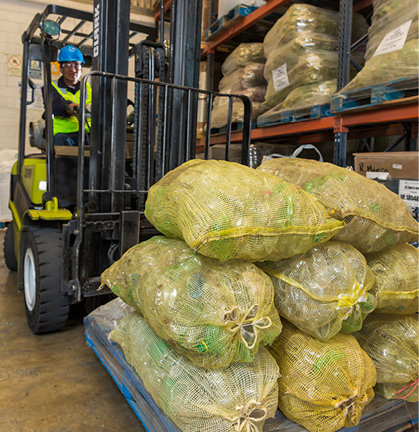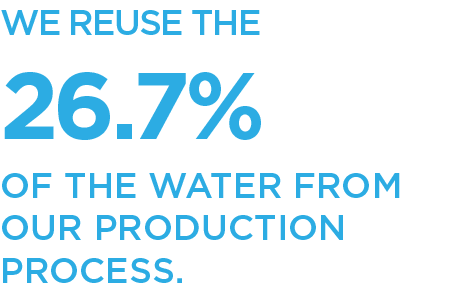Involvement in development
VALUE TRANSFER
Quality
Grupo Rotoplas is committed with the quality of its products and services, in order to achieve full customer´s and user´s satisfaction. We work according to our Quality Policy, providing a portfolio of best guarantee.
Our plants have quality management systems designed in accordance with ISO 9001 standard, those located in Mexico, Guatemala, and Peru are certified; however, our plants in Argentina and Brazil operate according to ISO 9001 standard requirements. In addition, some of our products meet certain standards.
For the monitoring of compliance with our policies and guidelines, as well as of the requirements of the rules and standards applied to management and products, we carried out internal and external audits.
The Company cares about the customers´ and users´ satisfaction of our solutions, which we monitor twice a year via survey. The satisfaction of our products is above 83% in all markets in which we operate, and the recommendation exceeds 95%.
The emphasis on quality that we put into our products is extended also to our supply chain, as it is related with the characteristics of raw materials that we use. In 2016, we assigned $3,371.9 million pesos to suppliers, a 6.5% less than the previous year, due to the variation in volumes and composition of our portfolio sales.
We are committed to local supply, which is completed with a business model that encourages manufacturing near target markets, in order to reduce the transportation due to the volume occupied by many of our solutions. 68.7% of expenditure was for local suppliers, aligned with 2015.
In addition to our emphasis on quality, we are looking to work with alternative materials with lower impact on the environment such as polyethylene and polypropylene. We also reuse all the plastic waste from our rotomolding processes.
We work closely with our suppliers to promote innovation that characterizes our solutions; developing, in addition, training programs particularly for suppliers that provide installation and maintenance services.
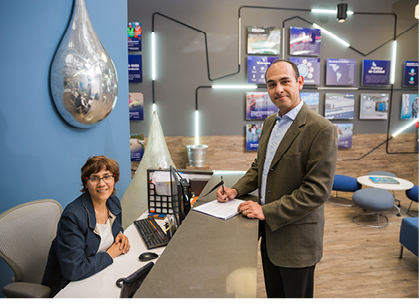
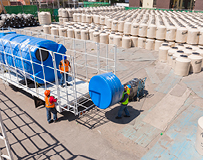
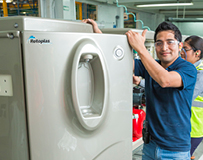
Water culture
Recognized since 2010 by the United Nations as a human right, access to drinking water and sanitation should also be continuous and sufficient for personal and domestic use, according to provisions of the multilateral organization.
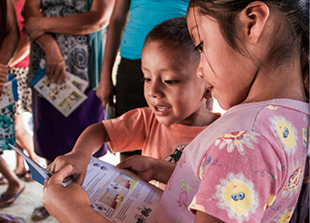
In Latin America, we face a complex hydrological reality which makes the supply of quality water, in sufficient amounts, a challenge. There is also little valuing of water as a public resource, a responsible use and no preservation of its quality, which drives the need for a collective culture. In this regard, Grupo Rotoplas pursues to promote different awareness activities.
In Mexico, an initiative that stands out is “Fan del agua”1 (Water Fan), a permanent platform where we create community. On the other hand, this year we launched the iniciative “La canción más larga” (The longest song) in Mexico, with the purpose of saving water during shower time, and we deliver this water volume to a vulnerable community. On the occasion of the World Water Day, in which we take part every year in 2016, we created the “Movimiento In” (In movement) in Mexico, regarding the importance of water and its rational use.
Being aware that the change in culture comes with the new generations, we established an alliance with the Papalote Museo del Niño (Children’s Museum) in Mexico City, to develop an interactive exhibition of the water cycle. We also work together with Universities, giving conferences about the global water situation, water awareness and new technologies.
We also took part of collective initiatives that create a new water culture, as the Water advisory council2, in which we chair the Committee on Culture and Sustainable Water Use.
1 http://www.fandelagua.com/
2 An NGO that pursues to create bounds between the spheres of public administrations, enterprises and other organizations, and promote
best practices in the management and use of water
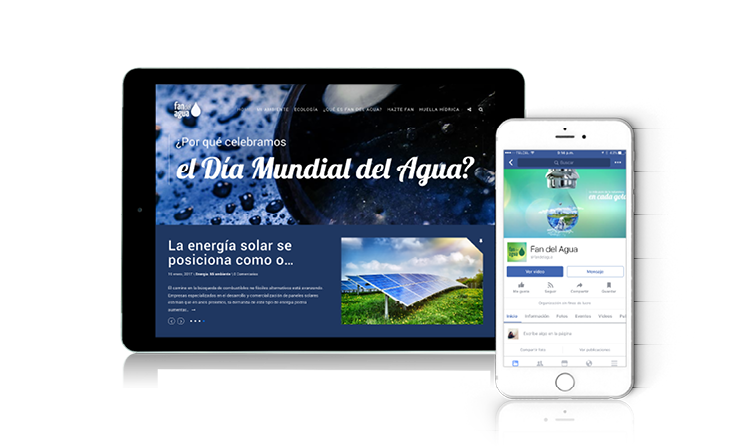
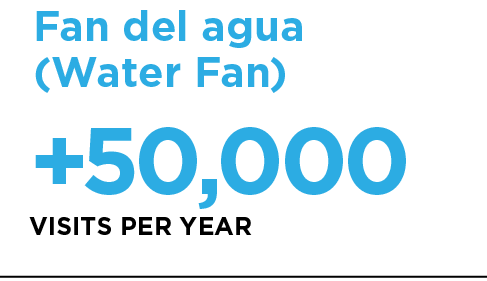
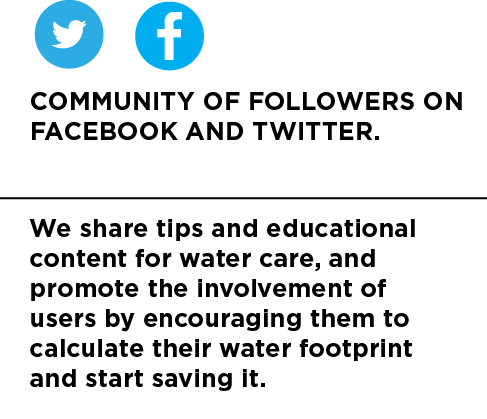
Operational efficiency
In Grupo Rotoplas we perform in accordance with processes, which facilitates coordination in the development of activities, greater operational efficiency and reducing costs, looking for a continuous improvement. With this approach, the operational flow to produce the products in our portfolio proceeds.
Through different stages of demand planning, preparation of the production plan and coordination of the distribution with third parties’ transportation service, we seek to be efficient in the use of resources, including energy, as well as to reduce emissions and waste generation, adopting reuse schemes. Regarding production, we monitor our different plants to identify good practices and replicate them all.
It is worth mentioning that we have an environmental management systems according to ISO 14001 in four of our plants in Mexico and Peru3, although the others operate according to the standard´s guidelines.
Regarding our energy consumption, it is mainly concentrated in the extrusion and milling, injection and rotomolding processes.
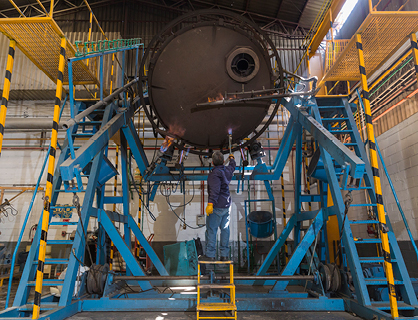
Energy Consumption 2016 - Main processes
| Process | Source | Consumption (kWh) |
|---|---|---|
| Extrusion and milling Injection |
Electricity | 32,200,953 |
| Rotomolding |
Natural gas LPG Electricity |
113,228,799 |
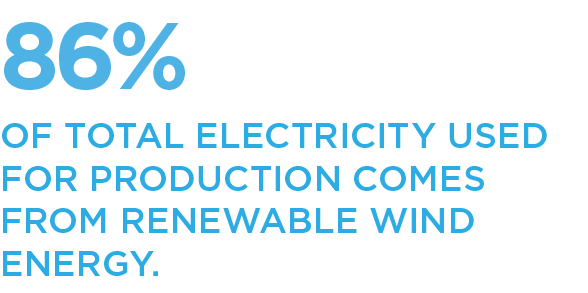
We are working on the implementation of measures that will allow us to have a more efficient energy consumption. With all this, the energy intensity in the manufacturing processes was of 2,159 kWh per ton of processed plastic material4. In addition, we are committed to the use of renewable resources and our energy supply comes from wind energy for extrusion, milling and injection processes, which represents the 86.0% of total electricity used for production5.
Energy Consumption 2016 - Main processes
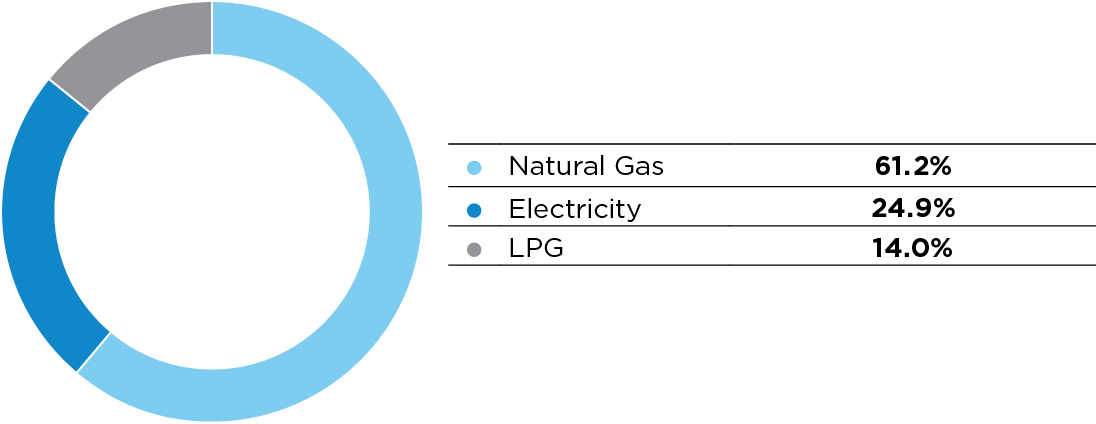
GHGs emissions related to the Company’s operations are mainly due to the energy we need. Whereas the consumption of electricity, natural gas and LPG, the figure is 36,371 tons of CO2e, that in terms of intensity compared to production is 0.52 tons of CO2e per ton of processed plastic material.
We apply our approach on operational efficiency also to the use of materials and waste generation. We reuse plastics resulting in obsoletes and scraps from the manufacturing processes. However, we generate another series of waste, as non-hazardous waste.
Waste 2016
| Category | Quantity (kg) |
|---|---|
| Hazardous | 48,697 |
| Hazardous and of special handling | 147,000 |
| Urban solids | 251,000 |
| No dangerous | 411,127 |
We separate the waste in our plants, complying with their storage conditions, subsequently, they are delivered to companies authorized to transport and treat them.
We are a company focused on water, in the provision of solutions to facilitate its access and quality. Although we don’t have highly water demanding processes, we work to optimize our use. In 2016, we used 75,538,000 liters, of which we then reuse the 26.7%. In order to increase this percentage, we worked during the year in the development of a recirculation system for the rotomolding process; This system will start to operate in some of our plants in 2017.
3 Contamos con sistemas de gestión ambiental certificados conforme a ISO 14001 en nuestras plantas de Lerma, Estado de México, León,
Guanajuato y Lima (Perú).
4 Contemplate the energy consumption of extrusion and milling, injection and rotomolding processes.
5 Total of electricity consumption related to more demanding processes: extrusion and milling, injection and rotomolding processes.
